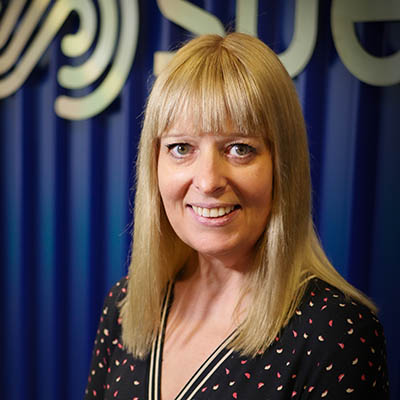A tale of social innovation in two cities

There are many problems in society that government or charities alone cannot resolve. But businesses can be the catalyst for new, more effective and sustainable solutions – often by working in partnership with public agencies and/or the third sector. This social innovation is happening and it’s inspiring to see it in action and meet the people involved.
This was the purpose of a recent trip with a SUEZ recycling and recovery UK team to our colleagues in Marseille. Part of an exchange of ideas across the SUEZ Group, the visit followed an equivalent two-day stay in Manchester by a French delegation early in November.
As Benoit Bonello, Directeur Innovation Sociale, observed then, our teams on either side of the Channel have previously shared the relevant facts about their challenges and initiatives through Teams meetings and PowerPoint presentations. “But when it comes to social innovation, there is nothing more effective than seeing projects for yourself!”
I can vouch for that, having seen first-hand the purpose and passion of the SUEZ team and social entrepreneurs working to create real change across the city and Provence.
Social inclusion
Promoting social inclusion has long been a core commitment of the SUEZ Group. Founded in 2002, Rebond Insertion is a subsidiary company dedicated to fighting exclusion by supporting projects to integrate into the workforce people who are long-term jobless, on benefits, have disabilities, or are under 26 without qualifications. Along with contracts for a minimum of 24 months, they are offered training and personal support in areas such as housing, health and indebtedness.
It was a privilege to meet one colleague who had come through the programme and to hear him explain the difference it had made in his life. Now working at a household waste sorting and recycling centre in a Marseille suburb, he was excited to share his ambitions to advance in management. Among its many partners, Rebond collaborates with l’Epopée (Epic), an innovative education centre. Located on a large, historic site in the north of Marseille that was the manufacturing home of Ricard (maker of the famous French beverage), the centre offers a wide range of training sessions with an emphasis on sustainability for corporate and other employers.
Our busy two-day schedule included other site visits. We met members of the Toutenvélo cycle logistics cooperative. As well as moving parcels and goods, the team use cargo bikes with a 300kg payload for bulky waste collections. One client is the Réserve des Arts & Casa Nova, a circular economy hub we also visited that specialises in recovering and re-use of materials from theatres and the creative sector. Meanwhile, the collection and composting of food waste is the speciality of another social enterprise, Les Alchemistes. The biowaste from Marseilles, Aix-en-Provence and Avignon is composted locally.
Last stop on the social innovation tour was the urban farm run by Le Paysan Urbain and sponsored by the SUEZ Foundation. Located in the 13th arrondisement (district) of Marseille, the 2,000m2 plot has two climate-controlled greenhouses that grow micro-greens, as well as school gardens and educational workshops. Among the 40-strong workforce are 28 people who are being helped back into employment or their first jobs.
Each encounter over the two days provided fresh insights into the role front-line waste management services can play in job creation, upskilling and retraining, and entrepreneurship – both social and circular. We will be trying to translate elements of these successful ventures in Marseille to our UK operations. Just as our French colleagues took away valuable lessons from their Manchester visit.
The Hub of things
I’ve previously mentioned our award-winning Renew Hub in Trafford Park, which serves the Greater Manchester Combined Authority’s metropolitan boroughs. The most advanced facility of its kind in the UK, the Hub’s pods are equipped for refurbishing a wide range of products from bicycles and furniture to electrical goods. Prison leavers are among those to have benefitted from skills training and work placements in the Hub, which is also designed to host community events as part of the SUEZ strategy to maximise social value through our activities. So far, more than 283,000 items have been processed, 20 jobs created, and half a million pounds raised for charity.
The French delegation, who enjoyed the opportunity to get hands-on, upcycling furniture in the Hub, also visited a household waste recycling centre in Altrincham, where one of the shops in the Renew network sells the recovered items at affordable prices to local residents.
SUEZ collaborates with community groups and social enterprises in Manchester and across the UK. While in Bolton, our guests also paid a visit to a recycling and textile centre run by Emmaus, a national charity providing long-term support to the homeless, including homes, training and work opportunities. The centre is funded by SUEZ and the Recycling 4 Greater Manchester (RG4M) community fund, which is, in turn, financed by sales revenue from the Renew network.
So, in several ways, our social innovation in Manchester mirrors what our SUEZ colleagues are doing in Marseille to combat social exclusion and build a more sustainable society. There are significant differences in culture and institutional structures, but we share very similar challenges and can learn from each other’s solutions.
What struck me from both visits is how social innovation thrives on connection – the sense of affinity, common purpose and passion shown by the social entrepreneurs, SUEZ colleagues and the communities and individuals they are helping. The commitment to collaborate not only facilities the exchange of ideas, it is also essential when putting those ideas into action.
This tale of social innovation in two cities can inspire us and other businesses and entrepreneurs to scale up collaborative activities in communities across the UK for the greater good of society.